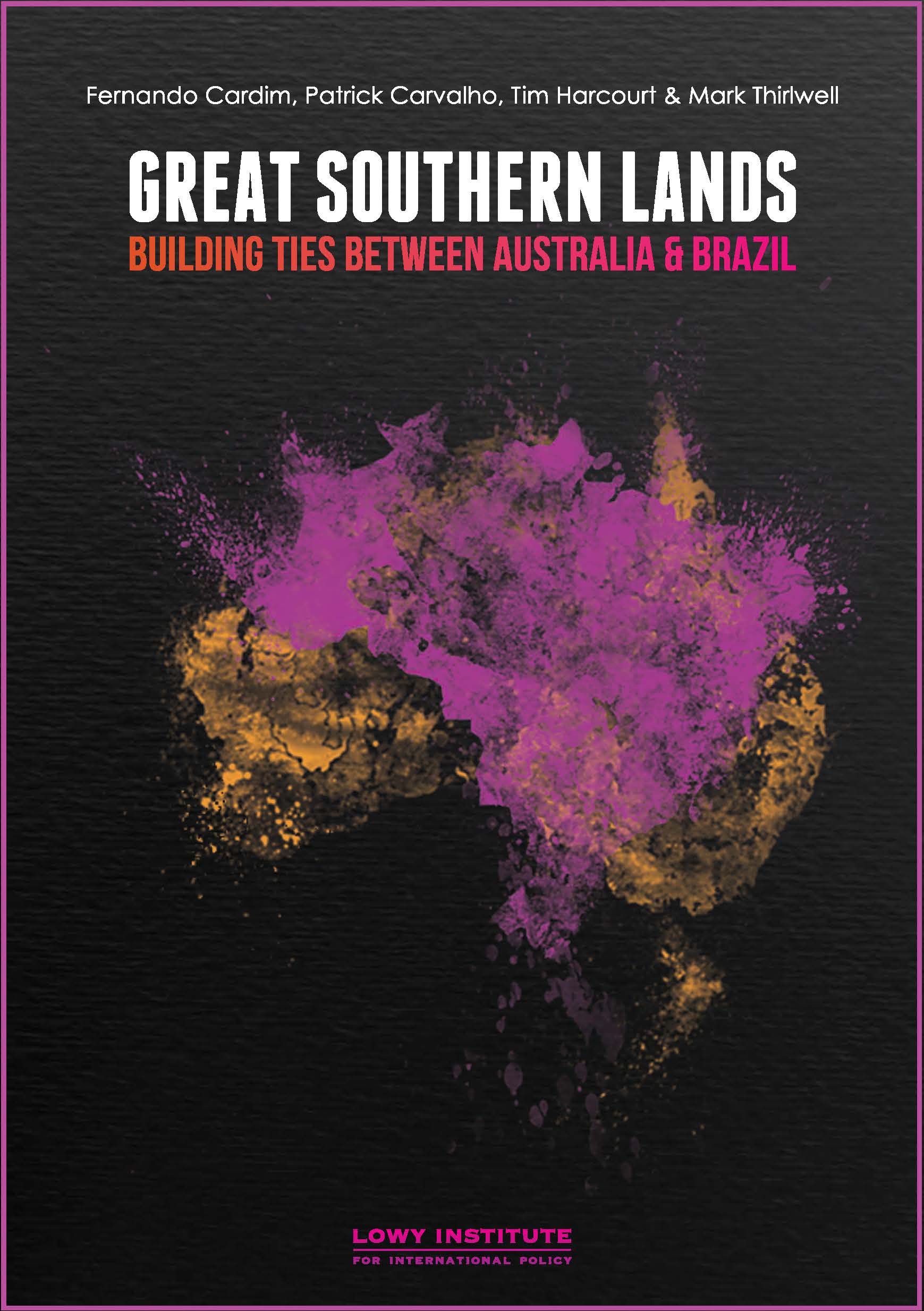Great Southern Lands: Building ties between Australia and Brazil
This report brings together four essays from Australian and Brazilian authors that collectively aim to shed some light on Brazil and its future importance to Australia and the world. It presents a series of perspectives on the modern Brazilian economy, its economic history, its ties with Australia, and its place in the world economy.
This publication is the product of a grant from the Council on Australia Latin American Relations (COALAR).

- Despite its growing importance in the global economy, Australia has tended to pay relatively little attention to Brazil.
- This is despite significant economic changes in Brazil, a growing global economic footprint, and the presence of some key shared policy challenges and opportunities.
- Brazil is now too big to ignore, and Australia should increase its focus on what could turn out to be a Southern hemisphere superpower.
Executive Summary
SUMMARY OF CONTENTS
The report’s overview by Tim Harcourt, the J W Nevile Fellow in Economics at the University of New South Wales and former Chief Economist of Austrade, reviews the current bilateral relationship across a range of sectors and industries. Drawing on a series of interviews with key Australians and Brazilians, this essay outlines current opportunities and discusses what might be done to further deepen ties between these two ‘Great Southern Lands’.
Fernando Cardim, an eminent professor of economics at the Federal University of Rio de Janeiro, then describes Brazil’s long-run economic performance and the important victories over high inflation and external vulnerability that set the stage for the current era.
ANU-based Brazilian economist Patrick Carvalho, former head of the Economic Studies Division at the Federation of Industries of Rio de Janeiro, provides a guide to the new Brazilian economy, setting out trends, opportunities and risks and makes the case that ‘Brazil is ready to finally embrace its long-heralded prime position in global affairs’.
In the report’s final essay, Mark Thirlwell, Director of the Lowy Institute’s International Economy program, puts Brazil’s economy into a global context and draws on this analysis, plus the presence of a range of shared policy challenges, to argue that Australians should pay more attention to what could be a ‘Southern hemisphere superpower’.

